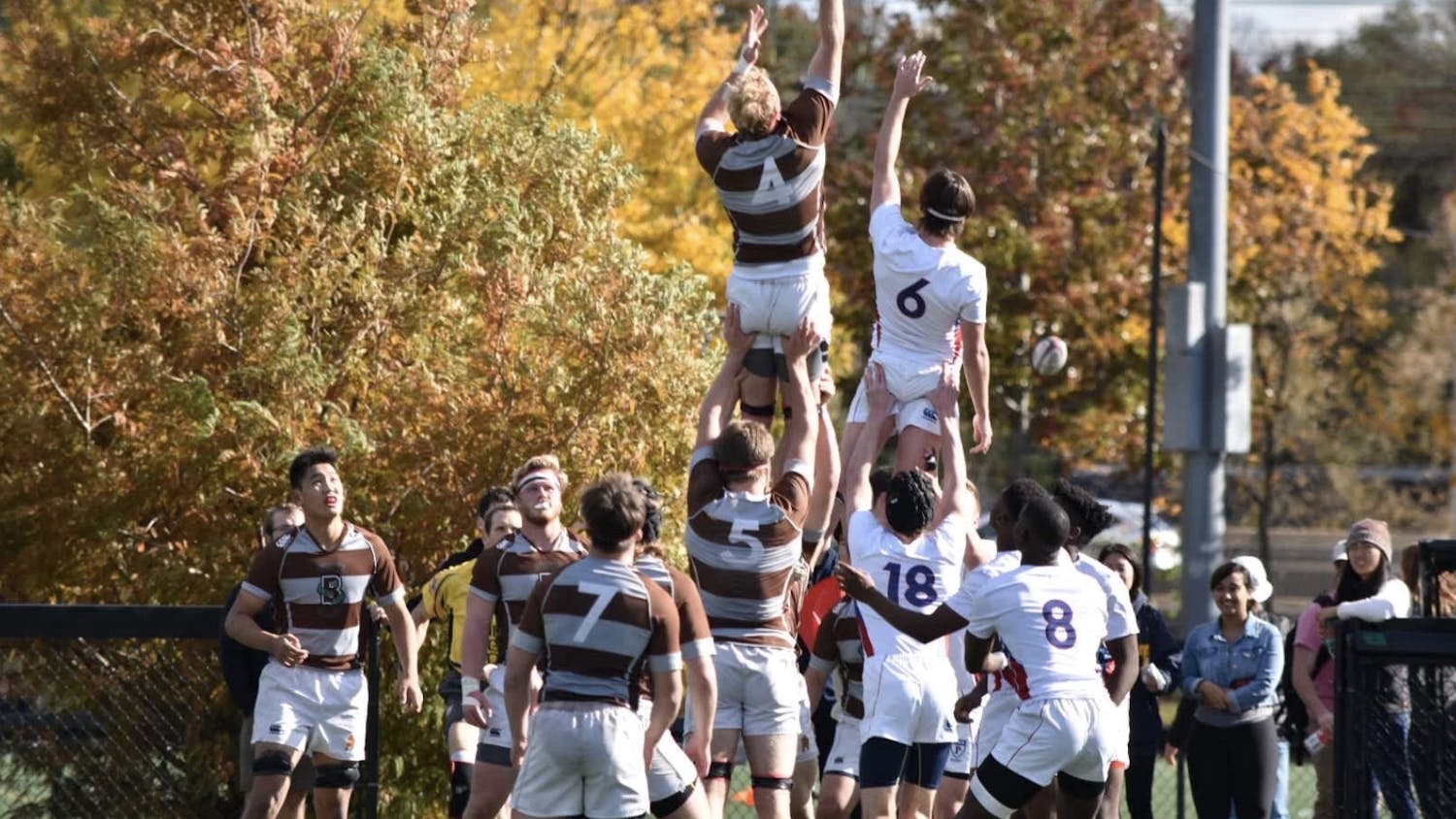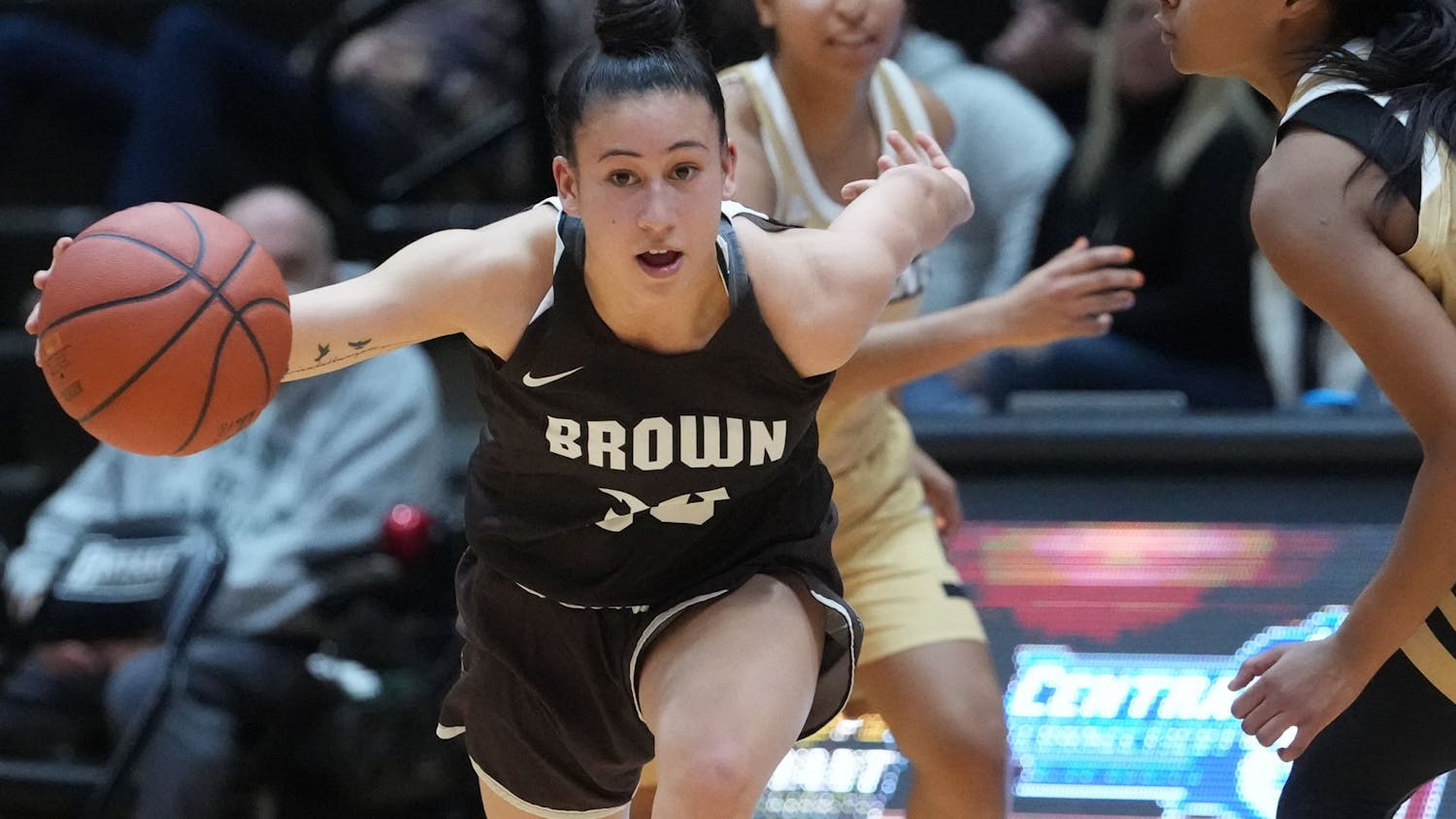The co-ed and women’s sailing teams competed in their final events of the fall in early November, concluding a season filled with high finishes in regional and national events. The end to their fall season also capped off their first year as varsity programs, after the Excellence in Brown Athletics Initative elevated them to the varsity roster.
“We had a terrific season from start to finish,” said Head Coach John Mollicone. Both teams ended the season second in the nation in the college sailing competitive strength rankings, which are algorithmically determined by the Intercollegiate Sailing Association.
The teams’ fall successes began in early September, with the women’s team finishing second of 18 teams in the Toni Deutsch trophy and the co-ed team placing second of 18 in the Harry Anderson Jr. trophy.
In October, the women’s team finished second in the Atlantic Coast Championship, and the co-ed team won the Atlantic Coast Qualifier.
In the final weekend of team competition, both teams placed second in the New England Inter-Collegiate Sailing Association Fall Championships. “We were right in there to win both of those events,” Mollicone said. “It was just a great way to end the fall season.”
In individual competitions, Connor Nelson ’24 won the NEISA Singlehanded Championship and was one of 18 sailors across the country to qualify for the ICSA Open Singlehanded Nationals, where he placed sixth. Leyton Borcherding ’25 also qualified, finishing 13th.
“It was a great feeling,” Nelson said of winning the NEISA championship. He said he was disappointed by not finishing higher at nationals, but added that “sailing a national championship and representing Brown while doing that was still an awesome experience.”
But while top sailors like Nelson found considerable individual success, a crucial aspect of the program’s success was its depth, according to Mollicone. The number of high-level sailors in the program, he said, allows for challenging practices that mimic regattas. “Our practices are harder than most of the competitions we go to.”
The programs’ fall successes come on the heels of a particularly strong spring season that included first place finishes for both teams in the NEISA championships: fourth place for the women and sixth place for the co-ed team in the ICSA national championships, and a sixth place result in the ICSA team race national championships.
Co-captain Emma Montgomery ’22 said the team gained a greater appreciation for sailing when it returned to competition in the spring after a pandemic-induced break. “We just came back with a lot of love for the sport,” she said. “More so than a motivation to win … it was that feeling of ‘how lucky are we to go down to the boathouse and go sailing’… that’s helped us do really well.”
Mollicone said the team was surprised it was able to compete so much in the spring since many other sports had their seasons cancelled due to COVID-19. “We were really fortunate that we were able to do as much as we were able to do,” he said.
“It really helped us get ready for this fall and put us in a really good place,” he said, adding that the team received a boost through the return of sailors that took the 2020-21 school year off.
This has been the first year competing at the varsity level for both sailing teams since they were elevated to varsity status in May 2020 as part of the Excellence in Brown Athletics Initiative.
The program previously competed as a club sport, which didn’t hinder its success. The women’s team won the 2019 ICSA National Championship, but its club status limited the resources available to the teams.
“The things that we have gained by being a varsity program have been huge for our team,” Mollicone said, mentioning access to strength and conditioning and trainers, greater travel assistance and general administrative support as significant benefits of varsity status.
It is also now easier for the program to recruit, according to Mollicone. “We’re able to attract even stronger recruits and a deeper recruiting pool,” he said. “We’ve always had a really strong program, but we were losing a lot of top recruits to other (schools), and we didn’t have those resources that kids wanted.”
Montgomery said the team culture has mostly remained the same since the promotions but added that many sailors feel a greater “sense of responsibility” while representing Brown as a varsity team.
But she added that an “unfortunate” consequence of varsity status was that the program now has roster limits. She said that due to Title IX rules related to gender equity in athletics, the team can only roster 10 men compared to roughly 25 women. “It’s made roster spots on the men’s side really competitive,” she said.
Still, Mollicone said the advantages of varsity status have already been important to the teams’ success and added that the program will continue to reap the rewards of stronger recruiting. “I don’t think we’ve seen the benefits all the way through yet,” Mollicone said.
The teams will now take a break during the winter but will take to the water again in February in hopes of another successful spring season and a strong challenge in the national championships.
“We go to every national championship trying to win,” Mollicone said, “so that’s what we want to try to do this spring.”
Montgomery hopes more members of the Brown community will take notice of the program in the spring as it continues to find success. “I wish that there was more awareness of the team on campus,” she said, mentioning that the team will host the New England women’s championships in April. “If there are ways we can rally fans to come down to the boathouse as they do (for) other sports, I think that’d be really cool,” she said.
Looking at the big picture, Montgomery believes the future of the Brown sailing program is bright. “We have the resources in place to I think be one of the best teams in the country,” she said, citing the sailing facilities, the increased practice time afforded by the rarely freezing Narragansett Bay, the improved recruiting as a result of varsity status and the coaching of Mollicone, who has led the program since 1999.
Nelson echoed Montgomery’s optimism. “We’re really at a starting point right now to unlock a lot of potential in our team over the next five years,” he said. “I don’t think it’s unreasonable to say we’re in a good position to possibly be at the top of college sailing.”





